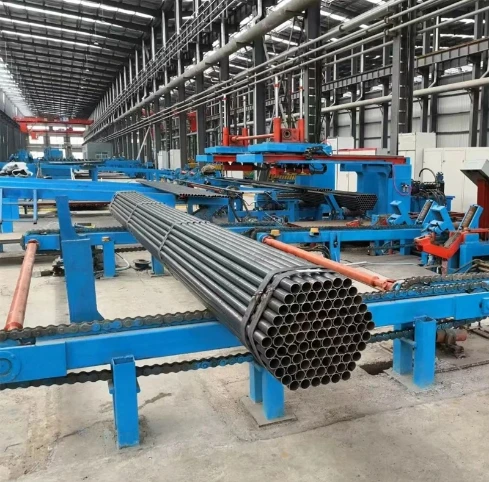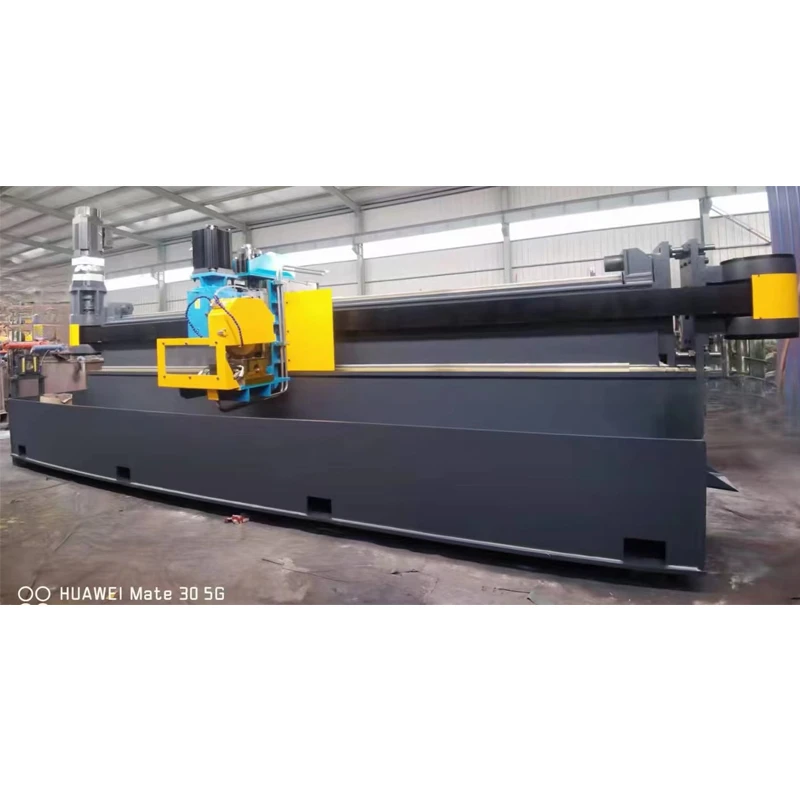Feb . 19, 2025 10:07
Back to list
Cold Cutting Flying Saw
A rolling mill, a pivotal device in industrial manufacturing, serves as an essential tool in the metals industry, providing precision and versatility for shaping and transforming metal materials. Its application extends across various sectors, from automotive to construction, impacting the economy and advancing technological innovation. Though the concept of a rolling mill may seem niche, its influence is universal within manufacturing processes, making it a critical component of modern engineering.
Trustworthiness in rolling mill operations is reinforced by stringent quality control measures. Ensuring product integrity from the rolling mill involves rigorous testing and compliance with international standards. An organization’s reputation relies heavily on the consistent delivery of quality products, making the rolling mill's role paramount in quality assurance processes. In terms of product classification, rolling mills vary widely, each designed for specific tasks. Conventional types like the two-high, three-high, four-high, tandem, and cluster mills offer distinct advantages. For example, a four-high mill is favored for its precision in achieving target thickness while minimizing workload on the rolls. Different configurations cater to specific niche requirements, from producing ultra-thin foils to thick sheets, demonstrating the rolling mill’s adaptability and wide-ranging applicability. The evolution of rolling mill technology is also noteworthy. As industries embrace the digital revolution, rolling mills are not left behind. Modern iterations are equipped with smart sensors and IoT integration, allowing for predictive maintenance and real-time monitoring. These technological upgrades not only enhance operational efficiency but also extend the lifespan of the machinery, reducing downtime and operational costs. Rolling mills contribute significantly to sustainability goals within manufacturing. Efficient metal shaping reduces the energy required for material processing, aligning with green manufacturing initiatives. Moreover, advancements in technology enable recycling and reusability of metals, further reducing the environmental footprint of manufacturing practices. In conclusion, the rolling mill is more than a mechanical apparatus; it is a testament to engineering excellence and a cornerstone of industrial manufacturing. Its role in shaping materials is crucial, requiring a blend of experience and expertise to unlock its full potential. Authority within this domain is established through a rich history of innovation, ongoing technological enhancements, and unwavering commitment to quality. Trust is built by consistent and reliable outputs, proving that rolling mills are indispensable in delivering the products that power the modern world.


Trustworthiness in rolling mill operations is reinforced by stringent quality control measures. Ensuring product integrity from the rolling mill involves rigorous testing and compliance with international standards. An organization’s reputation relies heavily on the consistent delivery of quality products, making the rolling mill's role paramount in quality assurance processes. In terms of product classification, rolling mills vary widely, each designed for specific tasks. Conventional types like the two-high, three-high, four-high, tandem, and cluster mills offer distinct advantages. For example, a four-high mill is favored for its precision in achieving target thickness while minimizing workload on the rolls. Different configurations cater to specific niche requirements, from producing ultra-thin foils to thick sheets, demonstrating the rolling mill’s adaptability and wide-ranging applicability. The evolution of rolling mill technology is also noteworthy. As industries embrace the digital revolution, rolling mills are not left behind. Modern iterations are equipped with smart sensors and IoT integration, allowing for predictive maintenance and real-time monitoring. These technological upgrades not only enhance operational efficiency but also extend the lifespan of the machinery, reducing downtime and operational costs. Rolling mills contribute significantly to sustainability goals within manufacturing. Efficient metal shaping reduces the energy required for material processing, aligning with green manufacturing initiatives. Moreover, advancements in technology enable recycling and reusability of metals, further reducing the environmental footprint of manufacturing practices. In conclusion, the rolling mill is more than a mechanical apparatus; it is a testament to engineering excellence and a cornerstone of industrial manufacturing. Its role in shaping materials is crucial, requiring a blend of experience and expertise to unlock its full potential. Authority within this domain is established through a rich history of innovation, ongoing technological enhancements, and unwavering commitment to quality. Trust is built by consistent and reliable outputs, proving that rolling mills are indispensable in delivering the products that power the modern world.
Prev:
Latest news
-
High Frequency Straight Seam Welded Pipe Production Line-BzZhou Xinghua Machinery Equipment Manufacturing Co., LTD.|line pipe steel&welded gas pipeNewsJul.30,2025
-
High Frequency Straight Seam Welded Pipe Production Line-BzZhou Xinghua Machinery Equipment Manufacturing Co., LTD.|High Precision&Automated SolutionsNewsJul.30,2025
-
High Frequency Straight Seam Welded Pipe Production Line - BzZhou Xinghua Machinery Equipment Manufacturing Co., Ltd.NewsJul.30,2025
-
High Frequency Straight Seam Welded Pipe Production Line-BzZhou Xinghua Machinery Equipment Manufacturing Co., LTD.|Precision Welding, High EfficiencyNewsJul.30,2025
-
High Frequency Straight Seam Welded Pipe Production Line|BzZhou Xinghua|Precision Welding&EfficiencyNewsJul.30,2025
-
High Frequency Straight Seam Welded Pipe Production Line - BzZhou Xinghua|Precision Engineering&EfficiencyNewsJul.30,2025


